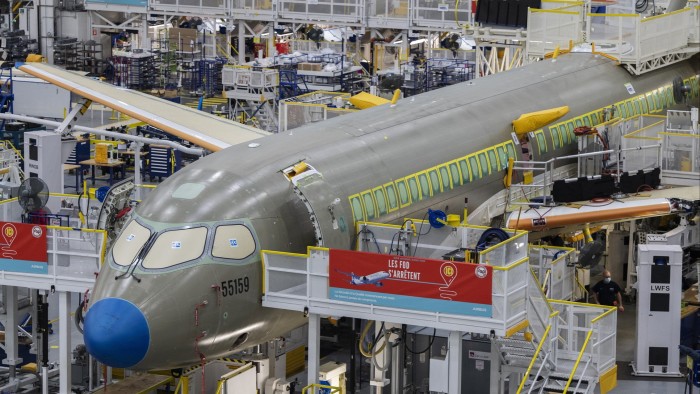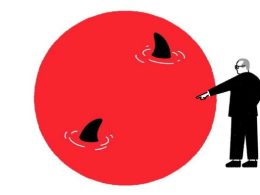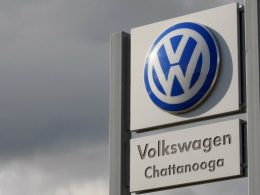Unlock the Editor’s Digest for free
Roula Khalaf, Editor of the FT, selects her favourite stories in this weekly newsletter.
Aircraft shortages will drag on for years amid persistent delivery delays by the world’s two large plane makers, the heads of some of the world’s largest aircraft leasing companies have warned.
Industry veteran Steven Udvar-Házy, executive chair of Air Lease, said neither Airbus nor Boeing had been able to meet “any of their production targets”. The delivery delays, he told the Airline Economics conference in Dublin, were cascading down through the rest of the supply chain.
Peter Barrett, chief executive of SMBC Aviation Capital, said the industry was still “in for a number of years of unpredictability around the supply chain”.
“I don’t think it is close to being fixed,” he added, although he noted that Airbus had “gotten better [in terms of] predictability”.
James Meyler, chief executive of Orix Aviation, told delegates that thanks to the pandemic, the industry was short of 4,000 aircraft that had not been built. “I think in reality we’re going to see all through the early 2030s, the effect of those 4,000 planes not being there.”
Aircraft lessors, which own and manage more than 50 per cent of the world’s fleet, are benefiting from rising lease rates as airlines have sought new aircraft to meet the rebound in passenger demand for air travel.
The strong resurgence following the Covid-19 pandemic, however, has compounded the challenges for manufacturers as they have tried to expand output despite supply chain strains, problems with engine deliveries and labour shortages.
Denis Hogan, managing director of Alton Aviation Consultancy and a founder of SMBC, said it would take “until the end of the decade” before the supply chain issues had been worked out.
Lease rates on new aircraft were in many cases up 10 to 20 per cent compared with 2019 levels, and even higher for older planes, said Hogan, adding that rates could go higher still.
“I don’t think we have reached a tipping point yet because demand is still rising and supply is still limited — anything that can fly is flying.”
Airline executives also expressed frustration at the industry’s supply constraints, in particular problems with engines that have forced some carriers to ground aircraft. Issues with Wizz Air’s Pratt & Whitney engines could last four or five years, according to the UK-listed company’s chief.
“I think they are trying their best, but this is going to be a long process. At the beginning, we felt maybe 18 months, maybe two years. This is clear, it’s more like a four- to five-year issue,” said József Váradi.
Air Lease’s Udvar-Házy said “one of the big judgment errors” that Airbus, Boeing and the engine makers had made in the wake of the Covid pandemic was to start increasing production rates before they had begun to stabilise their production capabilities.
Airbus is targeting to produce 75 a month of its best-selling A320 family of narrow-body jets, which are mainly used for short-haul flights, by 2027. The world’s biggest plane maker narrowly missed its target to deliver “around 770” aircraft in 2024, confirming last week that it handed over 766 jets to airline and leasing customers.
Airbus said the company was “facing some persistent and specific supply chain issues”, adding that it was working with suppliers to mitigate the impact of the current situation on its customers.
Boeing is slowly recovering from the consequences of a mid-air blowout of a section of one of its 737 Max aircraft in January last year. The manufacturer is gradually trying to increase output of the Max to 38 planes a month, the ceiling put in place by regulators following the accident.
Boeing did not immediately respond to a request for comment.
Aviation executives were also wary about the prospect of trade tariffs under the incoming Trump presidency in the US, which could hurt the wider industry’s closely interlinked supply chain.
“The main area that could impact is if he sets off a trade war — we already have significant supply chain issues. I don’t see him helping a solution on that,” said Hogan.
Source link









